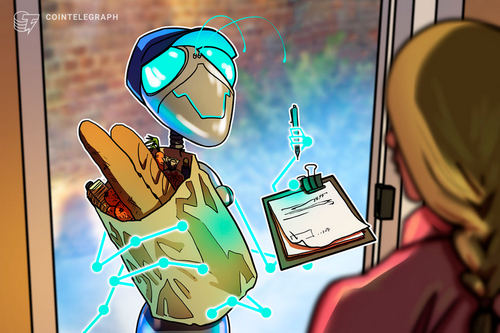The Bolivarian Government of Venezuela reported the news on Aug. 27. According to the report, Ramírez said that Patria Remesa was ready for use on a radio show that he hosts on Radio Nacional de Venezuela.
Additionally, Ramírez highlighted his confidence in the platform’s safety, as well as how the Venezuelan cryptocurrency El Petro (PTR) allegedly hedges against economic depreciation.
National Superintendent of Cryptoactives Joselit Ramírez has announced that crypto remittance platform Patria Remesa is live and functioning.
A brief overview of the Petro
Regarding the Petro itself, Ramírez explained:
«The Petro was a plan designed by the President of the Republic, Nicolás Maduro, to counter the attacks of imperialism and heal the wounds of war.”
As previously reported by Cointelegraph, President Maduro created the Petro in order to dodge economic sanctions imposed on Venezuela by the United States and other countries. Maduro said that the Petro would be backed by the country’s various assets, including oil, gasoline, gold and diamonds.
However, the launch of the Petro has been plagued by a number of issues, including Parliamentary Deputy Jorge Millan’s allegations that the token is a type of fraud, as well as U.S. President Donald Trump’s ban on purchasing it in the U.S.
Given the Venezuelan government’s history of not delivering on promises related to the Petro, Cointelegraph advises readers to approach Ramírez’s announcement with skepticism.

U.S. Treasury Secretary Steven Mnuchin, who has recently spoken out against Bitcoin and other cryptocurrencies, delivered the following remarks at a G-20 meeting in Buenos Aires:
“President Maduro decimated the Venezuelan economy and spurred a humanitarian crisis. Instead of correcting course to avoid further catastrophe, the Maduro regime is attempting to circumvent sanctions through the Petro digital currency – a ploy that Venezuela’s democratically-elected National Assembly has denounced and Treasury has cautioned U.S. persons to avoid.”
Vanguard Group Tests Blockchain Platform for Trading Currencies
The Vanguard Group is testing a blockchain-powered platform that will allow asset managers to trade currencies while avoiding the big investment banks.
On Oct. 3, Bloomberg reported that the United States-registered investment advisor group, Vanguard, is going after a piece of the global currency market that handles $6 trillion each day and is dominated by firms such as JPMorgan Chase and Deutsche Bank AG.
A source familiar with the matter said that the newly tested blockchain platform has been operational for over two months while handling several trades already.
By entering the global currency market, Vanguard could unsettle some of the major investment banks that have ruled the sector for decades.
Campbell Adams, a former senior currency trader at Deutsche Bank, believes this could happen if enough users join Vanguard’s platform. He said:
“In theory, it sounds great because you can reduce your costs if you can match directly with someone else who has a countervailing interest. Yet it will require a critical mass of users.”
Vanguard, which has over $5 trillion in assets under management, is “currently piloting a project focused on improving the efficiency and reducing the risk of FX hedging”, a spokeswoman for the investment group said, without going into further details.
Banks join JPMorgan’s blockchain network
Cointelegraph previously reported on Sept. 20 that OCBCbecame the first Singapore-based bank to join JPMorgan Chase’s blockchain network and is now one of the 134 banks from the Asia-Pacific region that are participants in the Interbank Information Network (IIN).
Germany’s largest bank, Deutsche Bank, joined IIN in the beginning of September. JPMorgan said it is targeting 400 agreements with banks by the end of 2019, hinting that more leading banks are set to join the network in the near future.

